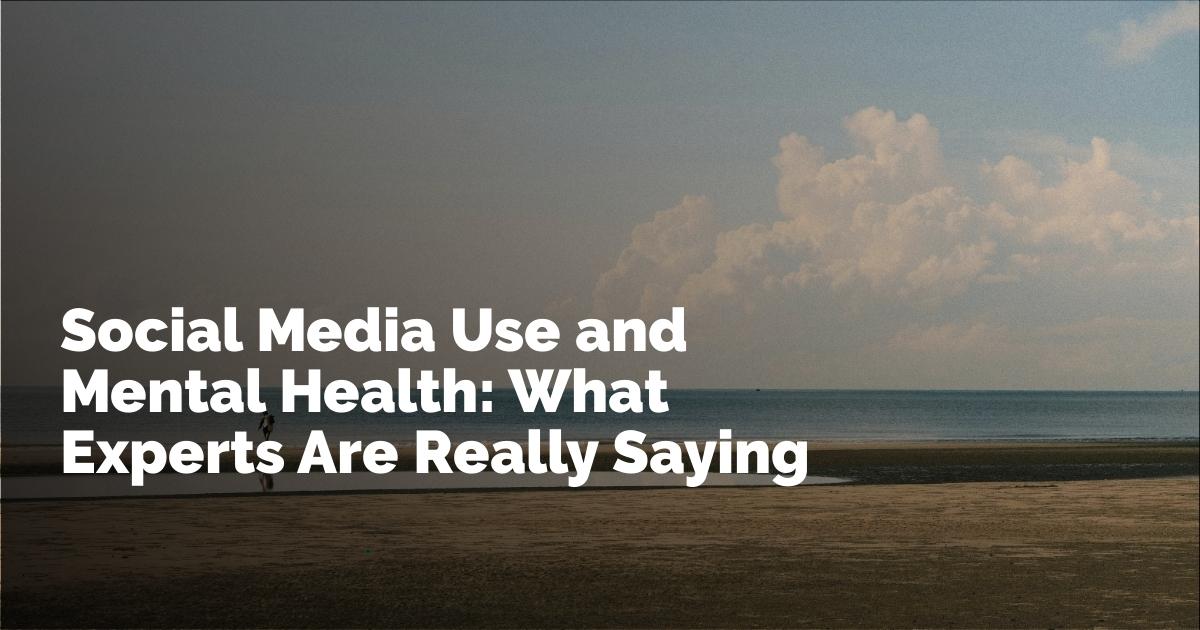Psychology Experts Question the Link Between Social Media and Mental Health Issues
In recent years, the rise of social media has sparked a significant amount of debate within the realms of psychology and mental health. Concerns about its potential effects on mental health problems such as anxiety and depression have gained widespread attention. However, a new comprehensive study led by prominent psychology experts challenges the prevailing belief that social media use is inherently harmful to mental health.
Understanding the Research
A collaborative effort among psychology experts from the UK and US—a team that includes Professor Linda Kaye from Edge Hill University and Professor Chris Ferguson from Stenson University, Florida, alongside colleagues from Northumbria University and Villanova University, Pennsylvania—has investigated the alleged connection between social media use and mental health issues. Their extensive meta-analysis sought to unravel the complexities of this topic by thoroughly examining the existing research.
Methodological Challenges Identified
The researchers conducted a meta-analysis of 46 different studies from various regions, including the UK, Europe, the US, and Australia. Through this exhaustive review, they uncovered significant "methodological weaknesses" in the current body of research surrounding social media and its influence on mental well-being. Professor Kaye and her colleagues concluded that there is no reliable evidence to directly link general social media use to mental health problems.
The Scope of the Study
While the study focused on the general use of social media platforms, it notably did not delve into the specific types of content on these platforms and their individual impacts on mental health. Importantly, the researchers did not downplay the importance of addressing the potential negative effects of harmful content, especially on young and impressionable users.
Voices of Caution
Professor Kaye emphasized the need for caution when interpreting claims about the wide-ranging impact of social media on mental health. She highlighted that often the evidence cited in public discourse lacks the necessary rigor and robustness, resulting in potentially misleading conclusions. In a society where social media plays a crucial role, ensuring the accuracy and reliability of scientific inquiries is paramount.
A Call for Rigorous Research
The call for more rigorous research in this field was strongly echoed by Professor Kaye. She urged fellow researchers to critically evaluate the quality of the evidence base and implement more innovative and stringent scientific practices. The goal is to better understand the nuanced nature of the relationship between social media use and mental health outcomes.
Analyzing Broader Variables
Through their meta-analysis, the team discovered that variables such as age, gender, and family relationships had a more significant impact on mental health than social media use itself. Interestingly, the study found that girls were slightly more prone than boys to experiencing negative mental health outcomes stemming from social media use.
The Role of User Intent
Professor Kaye also pointed out the importance of examining why individuals engage with social media in the first place. Whether it's for keeping up with news, interacting with loved ones, or other purposes, the underlying reasons and modes of social media use significantly influence users' experiences and, subsequently, their mental well-being.
Policymakers' Responsibility
Given the weight that scientific evidence carries in shaping policy decisions, Professor Kaye highlighted the necessity for policymakers to scrutinize the quality of the research they rely on. Ensuring that decisions are grounded in sound evidence is vital for effective policy-making in a world increasingly intertwined with digital interactions.
A Call for Self-Reflection
Beyond the realm of research and policymaking, social media users themselves have a part to play in determining the impact of their online activities. Reflecting on the nature and content of social media interactions, rather than just the time spent on these platforms, can lead to more mindful and healthier engagement.
Conclusion: The Future of Social Media Research
As an expert in cyberpsychology, Professor Kaye continues to explore how online environments shape our daily experiences and behavior. Her ongoing research aims to bridge the gap in understanding human psychology through the lens of online behavior.
This landmark study, published in the journal Professional Psychology: Research and Practice, signifies a crucial step in reevaluating our understanding of social media's role in mental health. As the discourse on this topic continues to evolve, the call for robust, evidence-based analysis grows stronger, providing a clearer path forward for researchers, policymakers, and social media users alike.
출처 : Original Source

